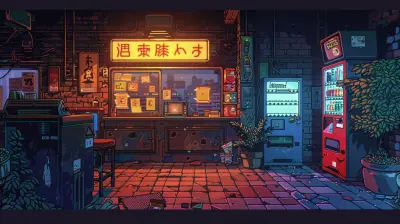How JRPGs Revolutionized Storytelling in Gaming
31 March 2025
Video games have come a long way, haven't they? Back in the day, they were all about high scores, pixelated graphics, and straightforward gameplay. Think of classic arcade games like Pac-Man or Space Invaders—fun, addictive, but not exactly brimming with emotional depth. Then came a genre that flipped the script on what games could actually mean. Yep, I'm talking about JRPGs (Japanese Role-Playing Games).
These games didn't just want you to play; they wanted you to feel. They wanted you to live through a story that could rival your favorite novel or movie. JRPGs took storytelling in gaming to a whole new level, crafting experiences that were as much about the journey as they were about the gameplay. And honestly, the ripple effects of their influence are still being felt across the gaming industry today. So, let’s dig in, shall we?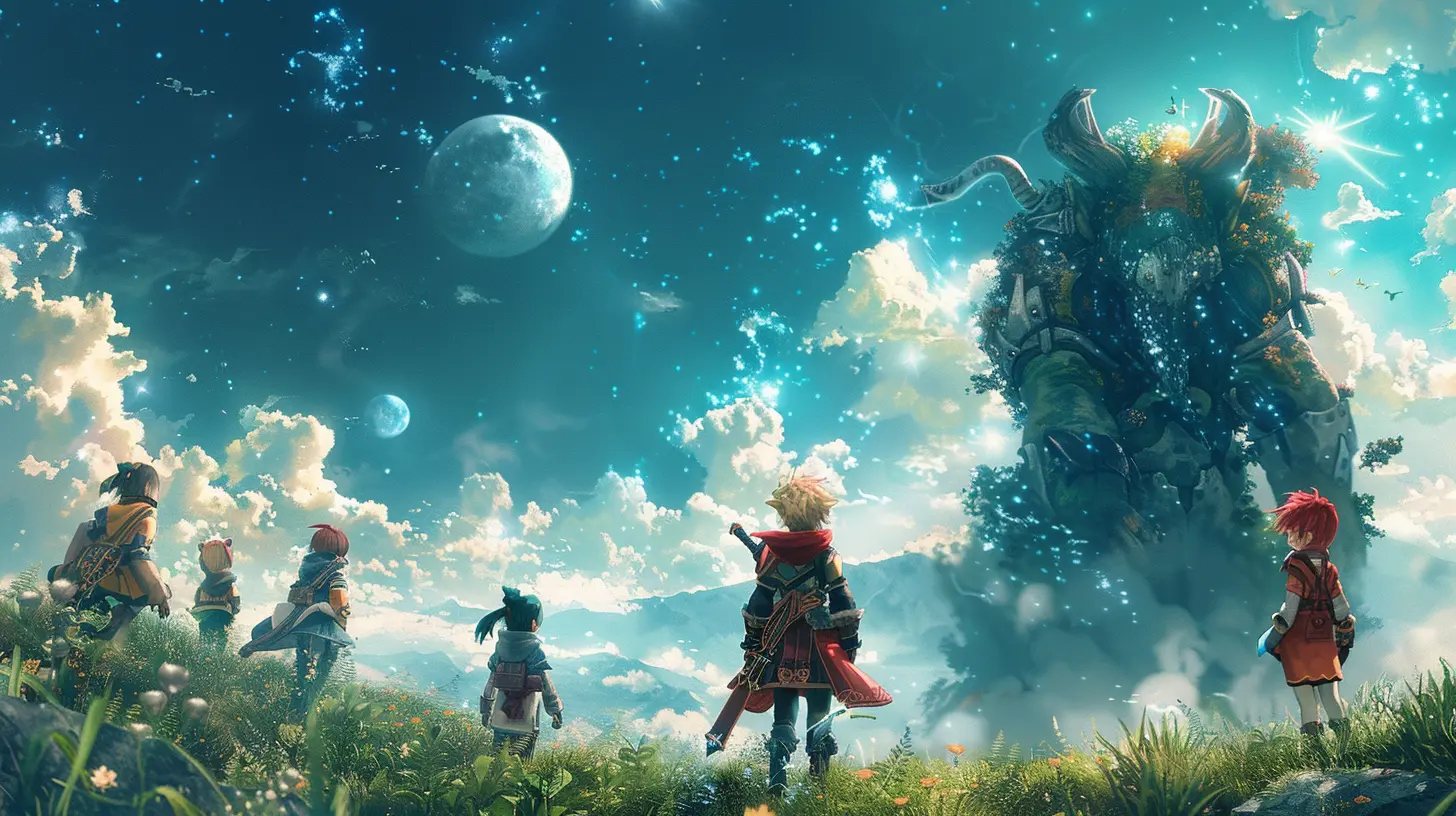
The Birth of Story-Driven Gaming: JRPGs Enter the Scene
When JRPGs started gaining traction in the late '80s and early '90s, the gaming landscape was completely different than what we see today. Most games back then were built around mechanics rather than narrative. It wasn’t about why you were saving the princess in Super Mario Bros.—it was just about getting the job done. The why didn’t matter.But then along came games like Final Fantasy, Dragon Quest (known as Dragon Warrior in the U.S.), and Phantasy Star. These weren't just games with a threadbare story tacked on; they were full-blown epics. We're talking about expansive worlds, complex characters, and narratives that dared to tackle big themes like love, loss, betrayal, and even existentialism.
JRPGs essentially said, “Hey, video games can be more than just a way to pass the time. They can be stories you experience firsthand.” And boy, did they deliver.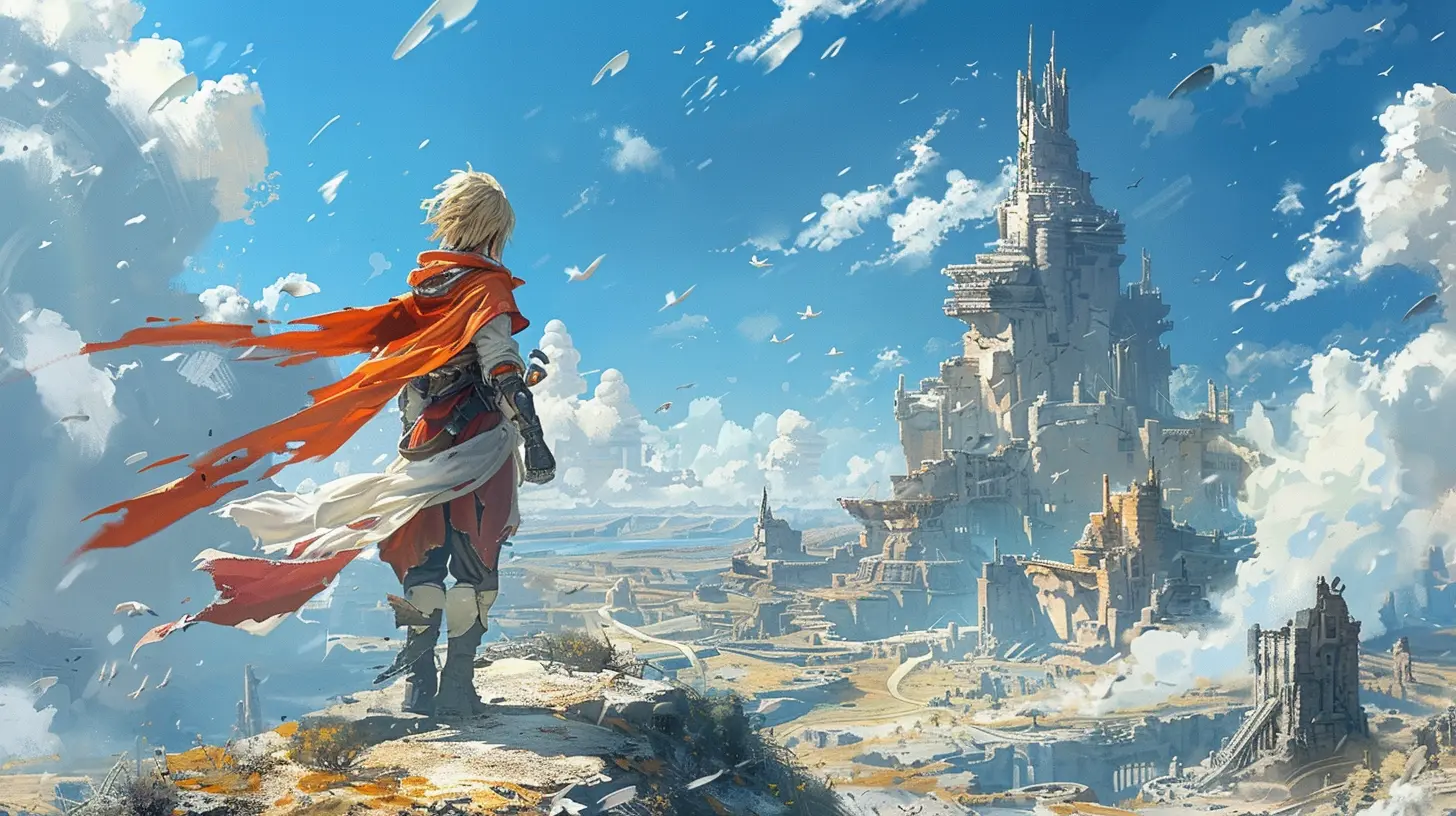
Emotional Depth: The Secret Sauce of JRPGs
One of the biggest ways JRPGs revolutionized storytelling is by adding heart to their narratives. These games didn’t shy away from making you care. You weren’t just mashing buttons to attack enemies; you were fighting to protect your friends, save your homeland, or even rewrite fate itself.Take Final Fantasy VII—arguably one of the most iconic JRPGs of all time. (C'mon, you knew this game was coming up.) When Aerith's death scene hit, it was as if the gaming world collectively gasped. No one saw it coming. It was a gut punch, sure, but it was also a turning point for gaming narratives. This wasn’t just a story you watched unfold; it was one you felt in your bones.
JRPGs taught us that games could be more than just fun—they could be deeply moving. They could make you laugh, cry, and wrestle with moral dilemmas. And that emotional depth? It’s something that modern games across all genres strive to replicate. 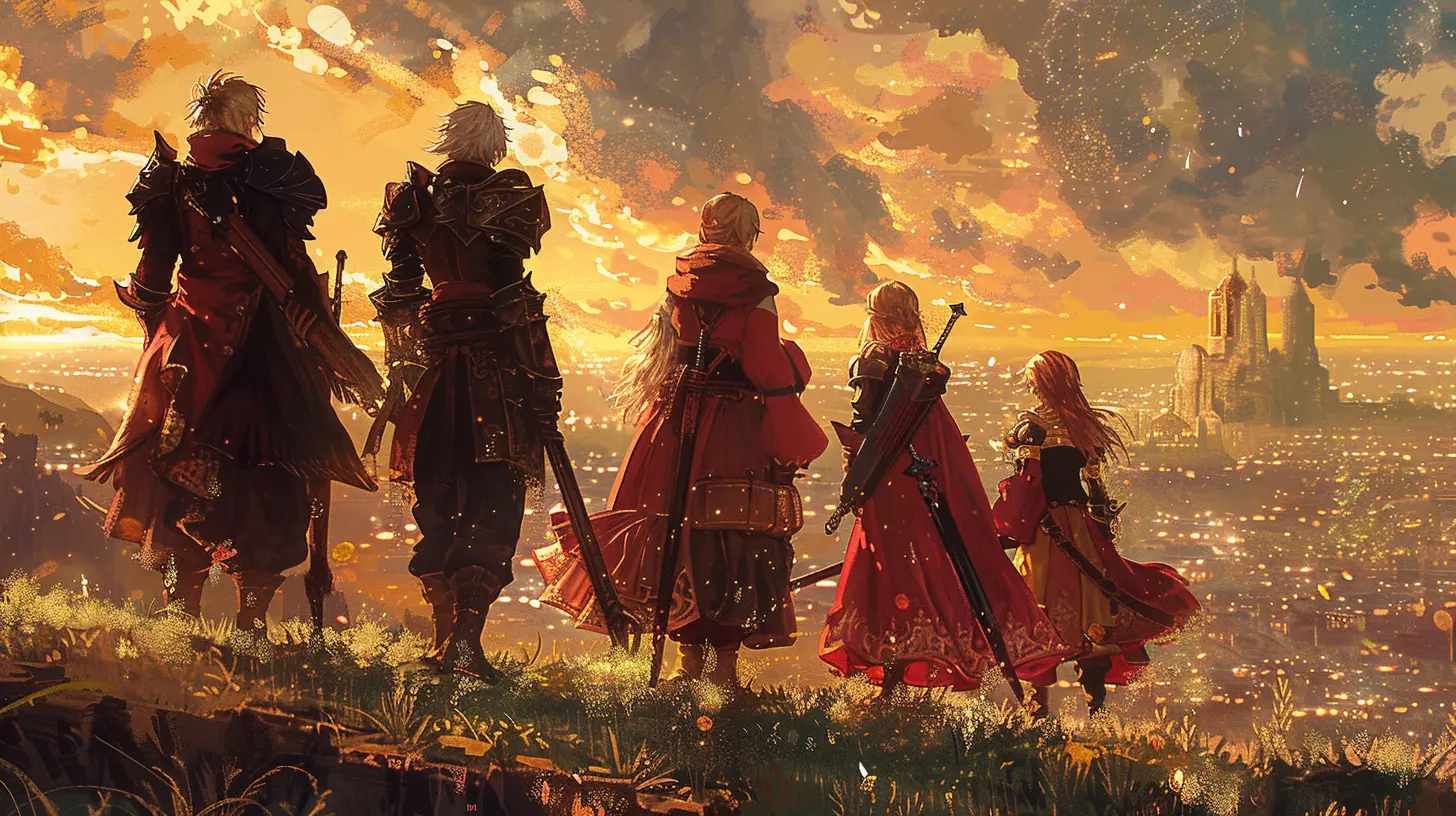
Character-Driven Stories: You’re in It for the Long Haul
Another game-changer? JRPGs made us realize just how powerful character development could be. These games usually have massive casts, right? And yet, they somehow manage to make almost every character feel meaningful.Look at Chrono Trigger. Each member of your party has their own backstory, quirks, and motivations. Frog isn’t just “the knight character.” He’s a cursed warrior carrying the weight of his past. And Magus? Depending on how you approach the story, he’s either your enemy or your ally—but either way, his tragic past will make you think twice about your decisions.
By investing so much in their characters, JRPGs created stories that were truly unforgettable. Players weren’t just along for the ride; they were there for the characters. They became friends, comrades, and sometimes even a little more (looking at you, Persona series).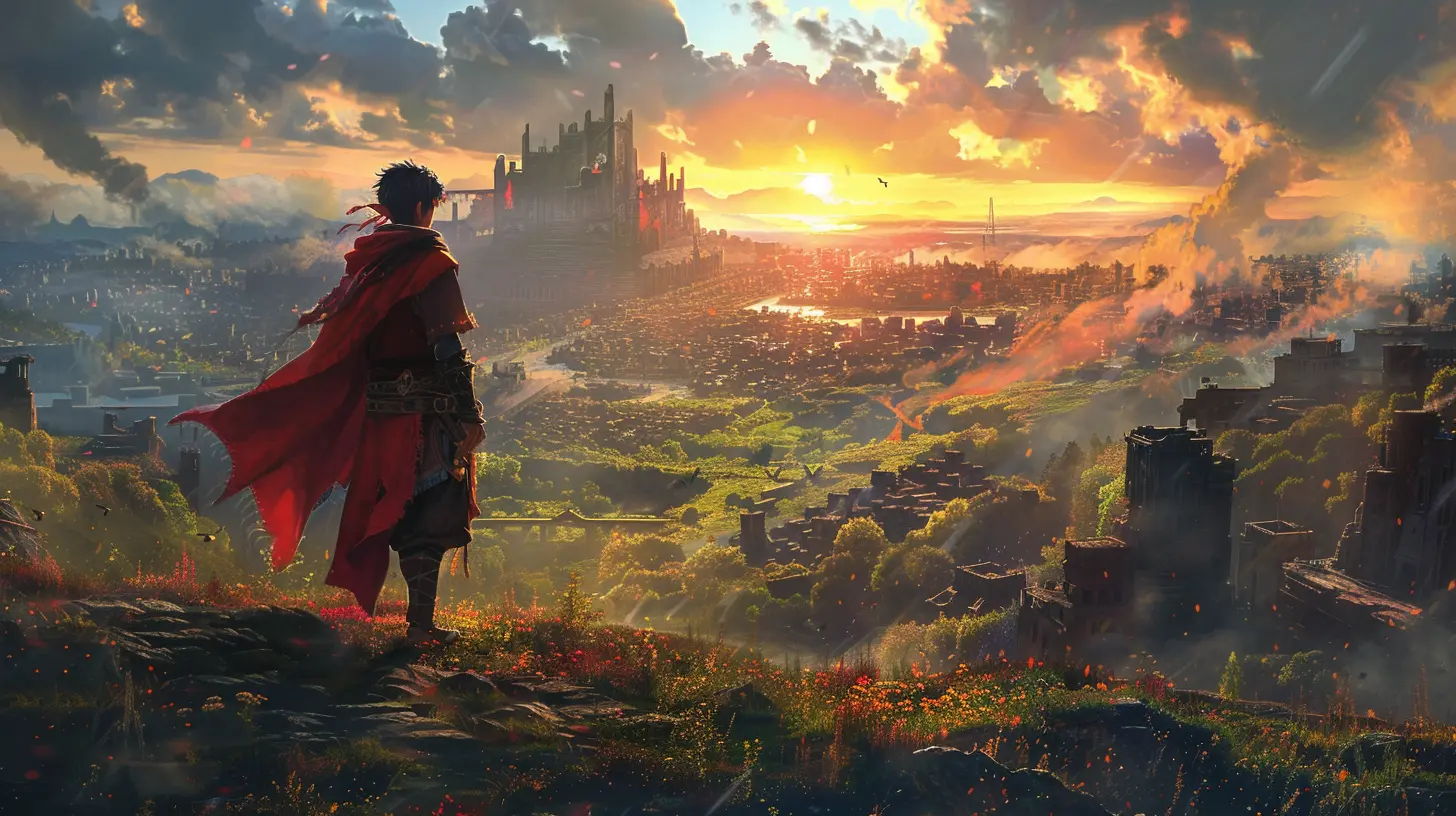
Big Themes, Bold Ideas
JRPGs weren’t afraid to go there. They tackled themes that were ambitious, complex, and sometimes downright heavy. Philosophical debates, ecological destruction, the nature of free will—you name it, JRPGs probably covered it.Take Xenogears as an example. This game dove headfirst into themes like religion, psychology, and the human condition. Admittedly, it got a bit convoluted at times, but the ambition was undeniable. It didn’t just want to entertain you; it wanted to make you think.
And that’s the beauty of JRPG storytelling. These games don’t just feed you a story—they invite you to wrestle with it. They leave enough space for interpretation, creating experiences that stick with you long after the credits roll.
The Marriage of Gameplay and Storytelling
Here’s another thing JRPGs did right: They didn’t make you choose between a great story and great gameplay. You got both. The turn-based battles, the open-world exploration, the minigames—it all fed into the narrative.Take the Persona series, for example. The whole daily life mechanic might seem mundane on paper—going to school, hanging out with friends, working part-time jobs—but it’s woven so seamlessly into the storytelling. The bonds you form with your teammates (via the Social Link or Confidant system) directly impact how you perform in battles. It’s not just flavor text; it drives the story forward.
This interplay between gameplay and narrative is something that a lot of modern games try to emulate. But let’s be real—JRPGs were doing it long before it was cool.
Cultural Influence: Breaking Barriers
JRPGs didn’t just revolutionize storytelling in gaming—they also broke down cultural barriers. These games introduced Western audiences to storytelling traditions and cultural motifs that were unique to Japan. Things like honor, duty, and spiritual connections with nature were often central themes in these stories.Games like Okami and Ni no Kuni artfully blended Japanese folklore with universal themes, creating something that felt both fresh and deeply resonant. And honestly? That cross-cultural exchange enriched the gaming landscape as a whole.
The Influence on Western RPGs and Modern Gaming
It’s no exaggeration to say that without JRPGs, we wouldn’t have the kind of story-rich games we see today. Western RPGs like The Witcher 3, Dragon Age, and Mass Effect owe a lot to the groundwork laid by JRPGs. Sure, these games have their own unique style, but the emphasis on emotional depth, character development, and complex narratives? That’s pure JRPG DNA.Even outside of RPGs, the influence is undeniable. Games like The Last of Us and Red Dead Redemption 2—both hailed as masterpieces of storytelling—take a lot of cues from what JRPGs have been doing for decades. The slow-burn character arcs, the emotionally charged set pieces, the moral grey areas—it’s all there.
The Challenges of the JRPG Genre
Okay, let’s keep it real for a second—not everything about JRPGs is perfect. Sometimes the pacing can drag (we’ve all been stuck grinding levels for hours), and the plots can get... well, let’s just say “complicated.” I mean, try explaining the plot of Kingdom Hearts to someone who’s never played it. Not easy, right?Despite these hurdles, though, the genre continues to evolve. Modern JRPGs like Persona 5 and Octopath Traveler are finding ways to streamline the experience without sacrificing depth. And honestly, that’s exciting to see.
Why JRPGs Still Matter Today
So, why should you care about JRPGs in 2023 and beyond? Because they remind us what video games are capable of. They show us that games don’t have to choose between being fun and being meaningful—they can be both. And in a world where attention spans are shrinking and instant gratification is king, JRPGs ask us to slow down, invest in a story, and lose ourselves in a world that feels alive.Wrapping it Up
At the end of the day, JRPGs didn’t just revolutionize storytelling in gaming—they redefined what games could be. They proved that games could tell stories that were just as compelling, emotional, and thought-provoking as any other form of media. Whether it’s the heartbreak of Final Fantasy VII, the timeless charm of Chrono Trigger, or the mind-bending ambition of Xenogears, JRPGs have left an indelible mark on gaming history.And honestly? We’re all better for it.
all images in this post were generated using AI tools
Category:
JrpgsAuthor:

Audrey McGhee
Discussion
rate this article
4 comments
Roman McDaniel
JRPGs transformed gaming narratives by intertwining complex character development with rich, multifaceted plots, encouraging emotional investment from players. Their innovative use of dialogue, branching storylines, and moral dilemmas set a benchmark in interactive storytelling, influencing countless genres and redefining player engagement.
April 13, 2025 at 2:44 AM

Audrey McGhee
Thank you for highlighting the profound impact of JRPGs on gaming narratives. Their intricate character development and engaging storytelling techniques have indeed set a new standard for player investment and emotional connection in interactive experiences.
Sheena Gilbert
Great article! JRPGs truly transformed gaming narratives, blending deep character development with immersive worlds. It's inspiring to see how their storytelling techniques continue to influence modern games. Keep up the fantastic work!
April 8, 2025 at 2:47 AM

Audrey McGhee
Thank you for your kind words! I'm glad you enjoyed the article and appreciate the impact of JRPGs on storytelling in gaming.
Arden Tucker
In pixelated realms where dreams intertwine, JRPGs weave tales, like stars that align. With rich narratives and hearts that ignite, They transform our journeys, day into night. A revolution of stories, in gaming’s embrace, Creating worlds that time cannot erase.
April 3, 2025 at 2:39 PM

Audrey McGhee
Thank you for beautifully capturing the essence of JRPGs! Their ability to blend rich narratives with immersive worlds truly revolutionizes storytelling in gaming, leaving lasting impacts on players.
Brandon McKenzie
What a fantastic article! It's amazing to see how JRPGs have transformed storytelling in gaming, blending deep narratives with emotional depth. Their unique character development and intricate plots have truly set a standard, making every adventure feel personal and impactful. Great read!
April 1, 2025 at 3:07 PM

Audrey McGhee
Thank you so much for your kind words! I'm glad you enjoyed the article and appreciate the impact of JRPGs on storytelling.

